The Importance of Keywords in Your Resume
The job application process is a competitive one, and job seekers are always looking for ways to stand out from the crowd. One of the most effective ways to do so is by optimizing your resume with relevant keywords. Keywords play a crucial role in the job application process, especially when it comes to crafting an effective resume. Recruiters and hiring managers often rely on applicant tracking systems (ATS) to filter through a large pool of resumes and identify qualified candidates. In this blog post, we will explore the importance of keywords in your resume and how to optimize them for maximum impact.
1. What is Keywords?
Keywords are specific words or phrases that are relevant to a particular job or industry. They can include skills, qualifications, certifications, job titles, and other industry-specific terms. The use of keywords in resumes helps recruiters and hiring managers quickly identify whether a candidate's skills and experience match the job requirements. Keywords play a crucial role in the job application process, especially when it comes to crafting an effective resume. By including relevant keywords throughout your resume, you can optimize it for applicant tracking systems (ATS) and human readers alike, increasing your chances of being selected for an interview.
2. Why are Keywords Important in Your Resume?
Keywords are important in your resume because they help recruiters and hiring managers quickly identify whether you have the necessary skills and experience for the job. Many companies use applicant tracking systems (ATS) to filter through a large pool of resumes and identify qualified candidates. ATS scans resumes for relevant keywords and phrases before passing them on to recruiters. Resumes that lack relevant keywords may get filtered out before they even reach human eyes. Therefore, using the right keywords in your resume can greatly improve your chances of getting noticed by recruiters and landing your dream job.
3. Where to Use Keywords in Your Resume?
To optimize your resume with keywords, include them in the following sections:
• Job titles and summary: Include your current or desired job title and a summary statement that includes relevant keywords.
• Skills section: Create a separate section for your skills and list relevant keywords such as programming languages, software, and tools you have experience with.
• Work experience section: Use keywords in the bullet points that describe your previous job responsibilities and accomplishments.
4. Examples of Keywords in a Resume
Let's say you are applying for a job as a web developer. Here are some examples of relevant keywords to include in your resume:
• Programming languages: JavaScript, HTML, CSS, Python, PHP, Ruby, Java
• Web development frameworks: React, Angular, Vue.js, Node.js
• Web design tools: Photoshop, Illustrator, Sketch, Figma
• Database technologies: MySQL, MongoDB, PostgreSQL, SQL Server
• Soft skills: Communication, problem-solving, teamwork, time management
By including these keywords in your resume, you are signaling to ATS and recruiters that you have the necessary skills and experience for the job.
In conclusion, using the right keywords in your resume can greatly improve your chances of getting noticed by recruiters and landing your dream job. By strategically incorporating relevant keywords throughout your resume, you can optimize it for ATS and human readers alike. Remember to be specific, avoid overusing keywords, and proofread your resume before submitting it. With these tips in mind, you can create a resume that stands out from the competition and gets you one step closer to your career goals.








